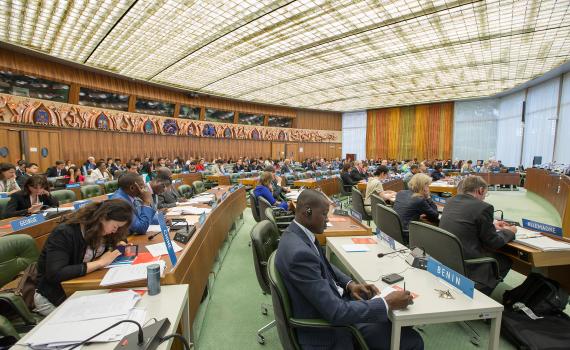
OVERVIEW
Digital technologies have changed the world, offering new ways to create and disseminate information, to research and to learn. Libraries have new opportunities to serve readers and communities in creative and innovative ways. But outdated copyright laws prevent people from benefiting.
While copyright laws in some countries are being modernized, in many developing and transition economy countries, the rules for accessing and using content are often restrictive, especially for digital formats. Overly restrictive copyright laws create legal barriers to using materials for education, research and socio-economic development.
User rights in copyright laws (also known as limitations and exceptions) must evolve so that libraries everywhere can support online education, open science and the use of digital research tools. And because world-class science and research is international and collaborative, cross-border uses of information should be permitted.
the need for international action
National copyright laws are governed by international copyright treaties and agreements. Therefore, it is essential that the international framework sets global standards fit for the digital environment and enables cross-border research and information sharing.
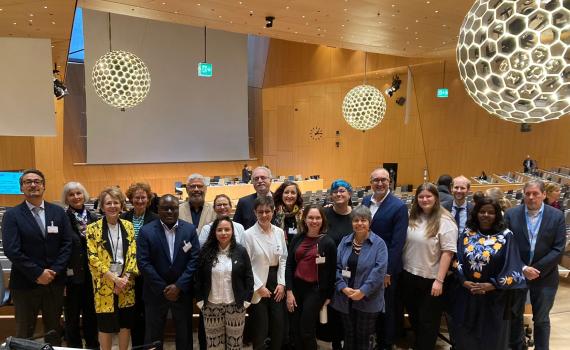 EIFL advocates at the World Intellectual Property Organization (WIPO), an intergovernmental organization that sets global copyright rules, for an updated international framework that supports modern library activities and services wherever they are in the world. WIPO alone has the mandate to set global standards, and only WIPO can address cross-border issues.
EIFL advocates at the World Intellectual Property Organization (WIPO), an intergovernmental organization that sets global copyright rules, for an updated international framework that supports modern library activities and services wherever they are in the world. WIPO alone has the mandate to set global standards, and only WIPO can address cross-border issues.
Limitations and exceptions at WIPO
The topic of limitations and exceptions (L&Es) for libraries and archives, education and research institutions and persons with disabilities has been on the agenda at WIPO's Standing Committee on Copyright and Related Rights (SCCR) since 2004. A key achievement of the L&E agenda was the adoption by Member States of the Marrakesh Treaty for persons with print disabilities (2013). Marrakesh, WIPO's most popular treaty to date, shows how WIPO can update international copyright rules by creating effective, targeted exceptions that work across borders, resulting in meaningful impact for millions of people around the world who are blind and visually impaired.
Negotiations on the other topics, L&Es for libraries and archives, education and research institutions and persons with other disabilities (other than print disabilities), continue at SCCR.
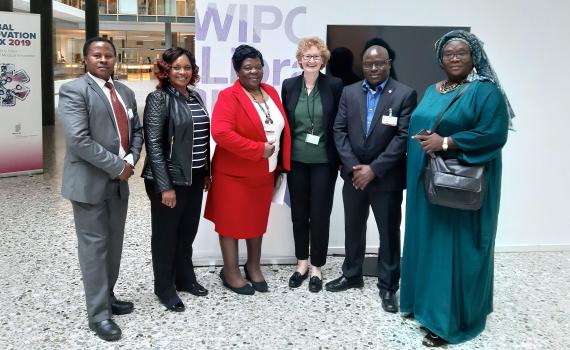 MAIN ACTIVITIES
MAIN ACTIVITIES
- We participate in sessions of WIPO's Standing Committee on Copyright and Related Rights (SCCR) in Geneva (EIFL has observer status), where we actively engage with Member States on library copyright issues (see here, for example).
- We make interventions during SCCR and the WIPO General Assemblies. Since 2005, we have delivered 100+ interventions (see here).
- We make presentations at side events during SCCR sessions (see here and here, for example), and we work with civil society allies in the Access to Knowledge (A2K) coalition to achieve our common goals (see here, for example).
- We participate in WIPO events outside Geneva, for example, WIPO Regional Seminar in Nairobi.
- We produce background papers on library copyright issues to support Member States (see here and here, for example).
- We develop proposals in treaty language, together with the international library, archives and museum communities, to assist Member States during negotiations - see Treaty Proposal on Limitations and Exceptions for Libraries and Archives (2013), Proposed Framework Treaty on Libraries, Archives and Museums (2018), proposed International Instrument on Preservation of Cultural Heritage for Libraries, Archives and Museums (2020).
- We support librarians from EIFL partner countries to participate in WIPO meetings - librarians from Armenia, Kenya, Latvia, Malawi, Moldova, Poland, Senegal, Uganda, Ukraine, and Zimbabwe participated for the first time in SCCR sessions in Geneva; librarians from Kenya, Senegal, Uganda and Zimbabwe represented EIFL at a WIPO Regional Seminar in Nairobi (2019), for example.
- We mobilize our network of EIFL copyright coordinators to engage with their national copyright officials in support of library advocacy at WIPO (see here, for example).
PROGRESS
Proposals by Member States (2004 - 2023)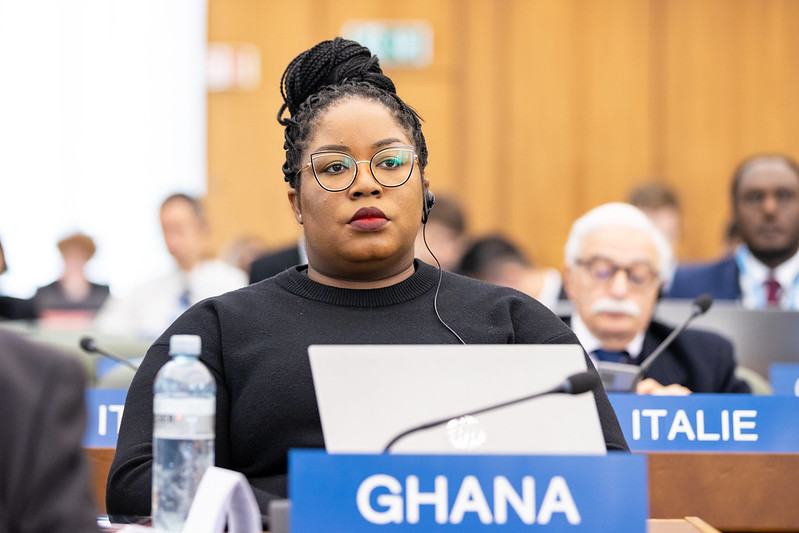
- Chile made a proposal, the first of its kind, to add exceptions and limitations for education, libraries and disabled persons to the SCCR agenda (SCCR/12/3)
- Brazil, Chile, Nicaragua and Uruguay made a proposal for a workplan to structure discussions related to exceptions (identify national models, analyze exceptions for creativity and innovation, establish agreement on minimum exceptions needed for public interest and socially beneficial purposes (SCCR/16/2)
- The African Group made the first proposal related to libraries and archives (and education & research) in a 'Draft WIPO Treaty on Exceptions and Limitations for the Disabled, Educational and Research Institutions, Libraries' (SCCR20/11), and an updated proposal, 'Draft WIPO Treaty on Exceptions and Limitations for the Persons with Disabilities, Educational and Research Institutions, Libraries and Archives' (SCCR/22/12)
- Brazil presented 'The Case for a Treaty on Exceptions and Limitations for Libraries and Archives: Background Paper by IFLA, ICA, EIFL and INNOVARTE' (SCCR/23/3)
- Multiple Member States (African Group, Brazil, Ecuador, India, United States, Uruguay) made text-based proposals (36 in total) in support of libraries and archives on 11 topics including digital preservation, research copies, cross-border uses and contract override (SCCR/26/3)
- The United States made a proposal, 'Objectives and Principles for Exceptions and Limitations for libraries and Archives' (SCCR/26/8)
- Argentina presented a Proposal Concerning Limitations and Exceptions for Libraries and Archives, Educational and Research Institutions and Persons with other Disabilities, setting out principles for uniformity and coordination of national exceptions at the international level (SCCR/33/4)
- The Chair of SCCR presented an informal chart on the 11 topics concerning libraries and archives, designed to reflect consensus among Member States on the principles, concerns and suggested approach for each topic (SCCR/34/5)
- The Committee adopted an Action Plan on Limitations and Exceptions Through SCCR/39 (2nd Meeting in 2019) including the development of a typology (a type of classification) of L&Es for libraries and archives, and the organisation by WIPO of three regional seminars on libraries, archives and museums, and an international conference in Geneva (SCCR/36/7)
- The Committee adopted a Work Program on Exceptions and Limitations, proposed by the African Group, that mandates concrete activities in three priority areas - preservation by libraries, archives and museums, and the use of preserved materials; online teaching, learning and research; and ways forward for people with other disabilities. It also describes a process to advance work on these topics (SCCR/43/8)
- The United States presented an 'Updated Version of the Document “Objectives and Principles for Exceptions and Limitations for Libraries and Archives”' (SCCR/44/5)
- The African Group made a 'Draft Proposal for the Implementation of the Work Program on Exceptions and Limitations, Adopted at the 43rd Session of the WIPO SCCR' setting out a detailed process and methodology for implementation, such as the creation of working groups on the priority issues (SCCR/44/6)
WIPO events and publications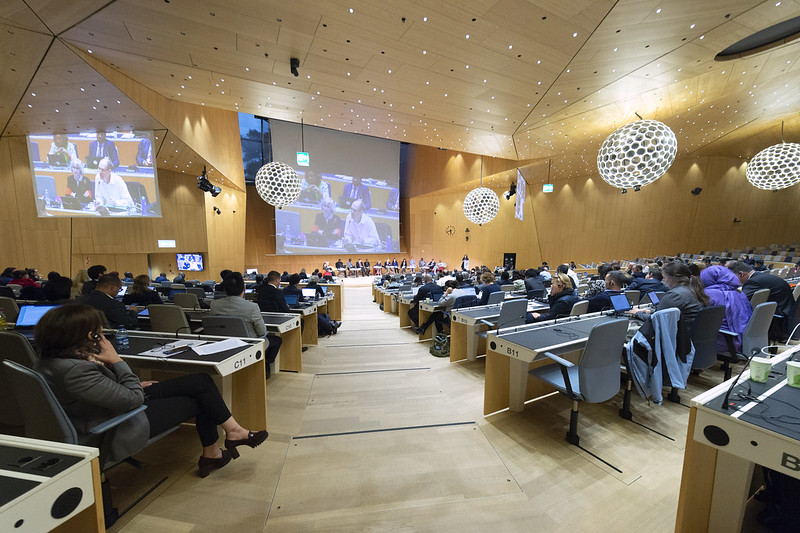
- Study on Copyright Limitations and Exceptions for Libraries and Archives: Updated and Revised (2017 Edition) (SCCR/35/6)
- Copyright Limitations and Exceptions for Libraries: Typology Analysis (SCCR/38/4); presented by Kenneth Crews at SCCR/39 (slides)
- Regional Seminars on Libraries, Archives, Museums and Educational & Research Institutions in the Field of Copyright - Asia-Pacific (April 29–30, 2019), Africa (June 12-13 2019), Latin America and Caribbean (July 4 and 5, 2019)
- International Conference on Copyright Limitations and Exceptions for Libraries, Archives, Museums and Educational & Research Institutions, October 18-19, 2019 (includes interviews, the way forward and SCCR considerations)
- Report on the Regional Seminars and International Conference on Limitations and Exceptions - Member States highlighted preservation by cultural heritage institutions as an area in need of urgent attention, and they expressed a common understanding of the need for a preservation exception (SCCR/40/2).
- Toolkit on Preservation: the first of its kind, the toolkit is intended as a WIPO-endorsed resource to help lawmakers to craft more coherent and authoritative legislation for preservation copying (SCCR/43/4). The final version of the toolkit will be launched in 2024, and a further toolkit on access to preserved works is planned.
EIFL reports on developments at WIPO
- 2023 - Broad cross-regional support for L&Es at WIPO (SCCR/44), A great week at WIPO (SCCR/43)
- 2022 - Libraries, research get a boost at WIPO (SCCR/42)
- 2021 - WIPO agrees to information session on COVID (SCCR/41)
- 2020 - EIFL at WIPO: fair access, preservation, no lending tax (SCCR/40)
- 2019 - Access to knowledge? WIPO not ready to decide (SCCR/39), Positive start to WIPO’s first copyright session in 2019 (SCCR/38)
- 2018 - EIFL looks forward to an exciting 2019 at WIPO (SCCR/37), Action at WIPO! (SCCR/36)
- 2017 - EIFL at WIPO SCCR/35 (SCCR/35), EIFL team advances library interests at WIPO (SCCR/34)
- 2016 - Round-up of the week at WIPO’s copyright committee (SCCR/33), What happened at WIPO’s copyright committee? (SCCR/32)
- 2015 - News from last SCCR of 2015 (SCCR/31), EU blocks progress on international copyright reform for libraries (again) (SCCR/30)
- 2014 - Deadlock at WIPO General Assemblies (A/54), "WIPO should take the lead on libraries before someone else does (SCCR/29), Another week of mixed fortunes at WIPO (SCCR/28)
background materialS
- 5 Reasons for International Action at WIPO on Limitations and Exceptions to Copyright for Libraries, Archives and Museums (link)
- A WIPO Treaty Benefits Libraries, Archives, and their Users (link)
- Copyright is for Everyone - Why a Modern Society Needs a WIPO Instrument for Libraries and Archives (link)
- The internet is global - but copyright exceptions stop at the border. Why we need an international treaty for cross-border access to knowledge (link)
- Time for a single global copyright framework for libraries and archives, WIPO Magazine (2015) (link)
- Copyright Limitations and Exceptions – why we have them and why they are important (link)
- Statement of Principles on Copyright Exceptions and Limitations for Libraries (2009) (link)





